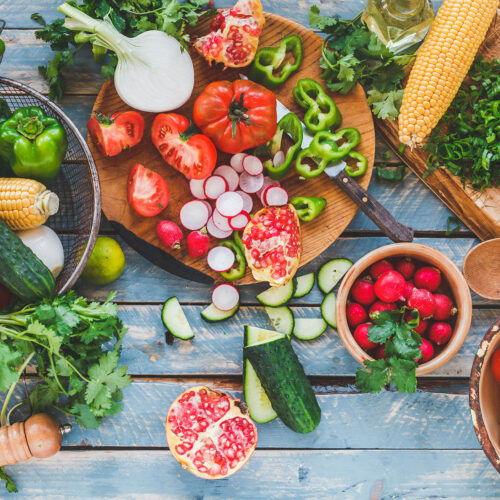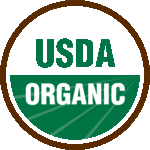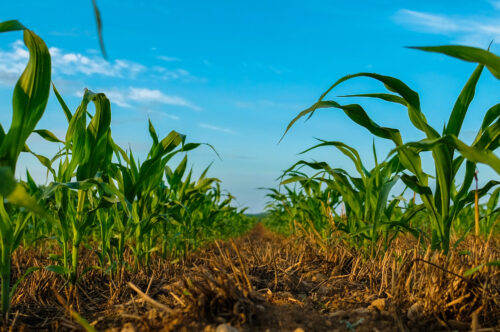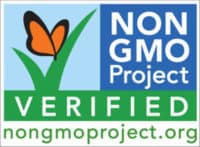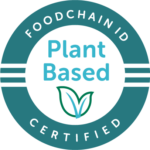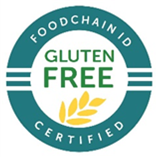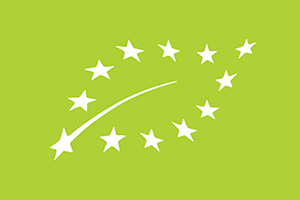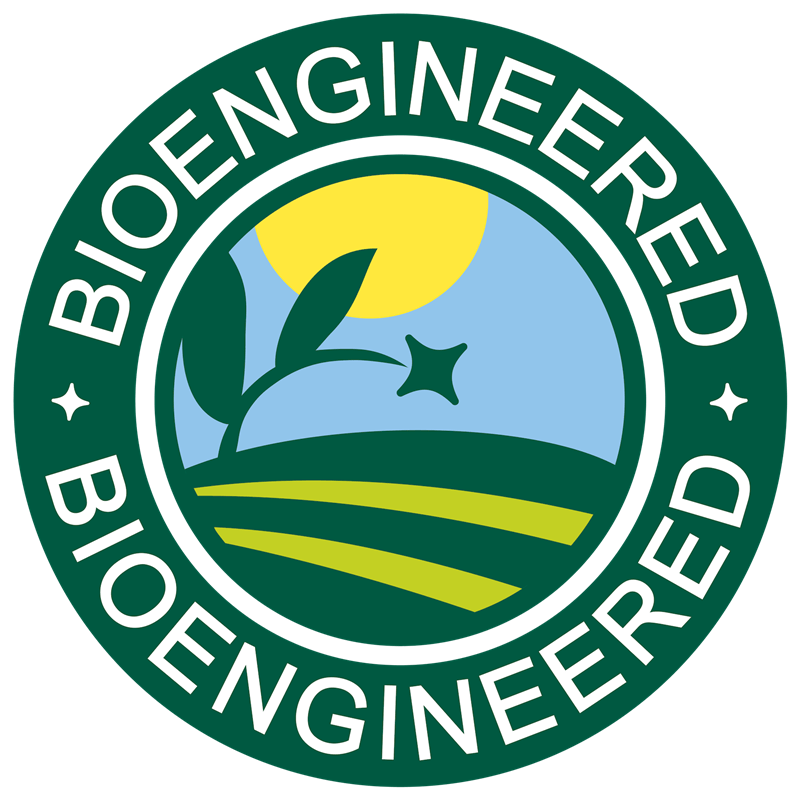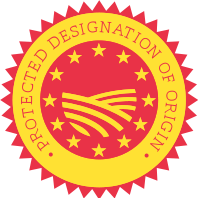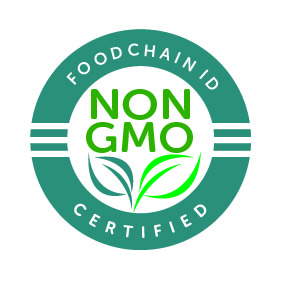
Genetically modified (GM) foods have raised concern amongst consumers regarding the impact on the environment as well as human and animal health. As a result, many countries require mandatory labeling of foods containing GM ingredients (inputs) where the percentage exceeds a certain threshold. To meet consumer demands for transparency and support companies in sourcing non-GMO materials, FoodChain ID Certification launched its Non-GMO Certification Program and Non-GMO Trademark (product seal) in 1999 to easily identify non-GMO products in the marketplace. This standard was previously known as the “Cert ID Non-GMO Certification.”
The FoodChain ID Non-GMO Global Standard is recognized within the industry as the benchmark for a non-GMO production system as it applies a quality management system approach to identity preservation. The Standard utilizes risk-based decision-making to build a strong certification program tailored to an organization’s needs. Key components of the program include risk assessments, traceability, and sampling/testing to verify compliance; the program is assessed annually against Standard requirements by FoodChain ID Certification. The Standard is applicable to organizations involved in the cultivation, production, processing, storage, distribution, logistics, and/or trade of non-GMO products. Product certification may be requested for raw materials, derivatives, additives, processing aids, and finished products, including livestock and animal feed.
Non-GMO v7.2
This new version of the FoodChain ID Non-GMO Certification Standard has been expanded to keep pace with the growing complexity and needs of the market.
FoodChain ID recognizes the importance of offering market-oriented solutions and adapting certification to meet these different markets. Version 7.2 accommodates the need to provide certification that is flexible and able to satisfy the requirements of the target markets.
FoodChain ID is committed to ongoing improvement of practices by all concerned and invites collaboration. This Standard is a key vehicle for implementing best practices and undergoes regular stakeholder consultation as part of the revision process. To speak to a member of our team, please visit our contact us page.
Version 7.2 Overview
- All enterprises regardless of size are welcome to use this Standard.
- This Standard may be used in business-to-business (B2B) or business-to-consumer (B2C) applications and provides several options for Non-GMO claims under v7.2.
- It is applicable to organizations involved in the cultivation, production, processing, storage, distribution, logistics, and/or trade of non-GM organisms and products. Product certification may be requested.
- Certification is designed to be region specific, so organizations can satisfy the requirements of non-GMO markets of their choice and multiple non-GMO markets.
- Compliance with this Standard serves as an assurance to operations that the products they place on the market comply with relevant government regulations. This Standard have been deliberately written so that a compliant Non-GMO claim for the market in question assures that no positive claim of GMO inclusion is necessary.
- The recent advent of new genetic modification techniques pose new challenges for detection and control of flow of new genomes created through these methods. This version of the FoodChain ID Non-GMO Global Standard addresses these challenges through the most realistic practices and techniques currently available.
To read the full FoodChain ID Non-GMO v7.2 Standard – download here
Non-GMO v6.2 to v7.2 – What’s changed?
Since the beginning, the FoodChain ID Non-GMO Standard has been recognized within the industry as the benchmark for a Non-GMO product system.
With our long experience in this realm, FoodChain ID understands our responsibility to help lead the way forward on this subject of increasing concern to citizens worldwide.
This has compelled FoodChain ID to broaden and further strengthen the service offering of its Non-GMO Global Standard and Certification Program. The previous version 6.2 has thus been revised into a new version 7.0, with additional minor changes to version 7.2.
Changes
- The Standard now provides explicit options for B2C (business-to-consumer) product claims, so that retail packages may attest to non-GMO content
- More Specific Identification and Classification of Inputs According to Risk – inputs that involve a degree of GM risk are now categorized as prohibited, risk or potential risk
- While the FoodChain ID Non-GMO Global Standard still allows flexibility for potentially all markets where specific legal tolerance threshold levels for GMOs have been set, the Standard now also provides specific levels for European and North American markets respectively, as well as sets default threshold levels for markets where no such levels have been legislated.
- Quality management systems and risk management are foundational practices for meeting the requirements of the FoodChain ID Non-GMO Global Standard. Version 7.2 still requires such systems be implemented but allows for greater flexibility in how such systems are designed and formalized by certified operations.
- Version 7.2 includes several clauses aimed at ensuring that sampling and testing plans provide results that are consistently statistically significant and at a high level of confidence
- The Standard now includes requirements that will more readily enable farms and/or livestock operations to become certified in their own right.
To understand the differences between v6.2 and v7.2 – view our Summary of Changes document
To read the full FoodChain ID Non-GMO v7.2 Standard – download here
Why FoodChain ID Certification’s Non-GMO Certification Program?
- Certification in accordance with mandatory labelling requirements concerning GMOs
- Market-oriented Targeted Threshold Levels
- European Union Regulation(EC) No 1830/2003 for traceability and labelling of GMOs
- Brazilian legislation (Decree No. 4680)
- Other labelling and non-GMO programs
- Risk-based sampling and testing
- Traceability Certificates of Compliance (TCCs) to batch/lot level
- Use of the FoodChain ID Non-GMO seal for value-added recognition of your certified products
Non-GMO Legislation
Europe
FoodChain ID Certification certifies products that comply with European Union (EU) Regulation (EC) No 1830/2003 for traceability and labelling of GMOs in food and feed. According to the regulation, products containing GMOs above 0.9% per ingredient shall be identified with a unique code and labelled for GM content. Adventitious (accidental) or technically unavoidable GM content of EU approved GMOs is allowed without labelling at a concentration no higher than 0.9%. However, a constant presence of GM content—even if below the 0.9% threshold–must be labelled. Products containing any trace amount of GMOs not approved in the EU are immediately withdrawn from the market.
Brazil
Brazilian legislation (Decree No. 4680) provides for mandatory labelling of natural products, ingredients, food, and feed containing GMOs or derivatives with a GMO content equal to or above 1%. Meat, milk, and eggs from animals fed with feed containing GMO ingredients must also be labelled. Ordinance No. 2658 regulates how the labelling must be done through the use of a yellow triangle with a black T.
Why choose FoodChain ID Certification?
The FoodChain ID Non-GMO Global Standard is recognized within the industry as the benchmark for non-GMO identity preservation. Below are just a few of the reasons why you should choose FoodChain ID for non-GMO certification:
- FoodChain ID Certification is the recognized pioneer in non-GMO certification
- FoodChain ID Certification has more than 15 years of inspection and certification experience
- Certification against the FoodChain ID Non-GMO Global Standard verifies non-GMO claims
- The FoodChain ID Non-GMO Global Standard is regularly updated and current with industry standards
- FoodChain ID Certification is the acknowledged industry leader by retailers and brands worldwide for non-GMO certification
- The FoodChain ID Non-GMO Global Standard verifies compliance to global regulatory requirements (e.g. EU threshold of less than 0.1% EU authorised adventitious and technically unavoidable GM presence requirements)
- Traceability Certificates of Compliance (TCCs) are issued to batch/lot level for added confidence of conventional providence
- Customer satisfaction, close communication and continual improvement are our top priorities
- FoodChain ID Certification Non-GMO approved auditors have completed FoodChain ID Certification’s rigorous training program
- Quick delivery of certificates, helpful and well-mannered auditors and referral to trusted industry consultants are all part of FoodChain ID Certification’s non-GMO service
- FoodChain ID Certification audits are carried out professionally by hand-picked, fully qualified, food industry experienced auditors
- FoodChain ID Certification audit reports and certificates are issued on time in order that you meet your customers’ requirements.
Apply for Certification
For more information about FoodChain ID’s Non-GMO Certification Program please fill out our contact form and one of our representatives will be in touch with you as soon as possible. Include any details about your inquiry within the comments field.
Please note: The FoodChain ID Non-GMO Certification standard is not offered for operations in the U.S. or Canada for any Business-to-Consumer products that are within the scope of the Non-GMO Project’s Product Verification Program.
Additional GMO Indentification Services
Non-GMO Project Verification
As the longest serving technical administrator for the Non-GMO Project’s Product Verification Program, FoodChain ID has verified more products than our competitors combined – over 50,000 products – and served more than 2,500 clients in over 100 countries. FoodChain ID clients include North America’s most trusted brands, producers, retailers, co-packing and manufacturing companies, livestock and crop producers, small businesses, and importers and distributors of internationally traded brands.
If you’re interested in acquiring the Non-GMO Project “Butterfly Seal” FoodChain ID can help.
You can also receive a free instant online cost estimate
GMO Testing
Accurate and reliable test methods are critical for determining the GM content in products. To ensure these criteria are met, the Standard requires the use of GMO test methods established by the Global Laboratory Alliance (GLA), which are performed by a FoodChain ID approved laboratory. Analysis performed by a FoodChain ID approved laboratory ensures the testing of specific GM traits and non-approved varieties at various limits of detection for accurate testing according to the Targeted Threshold Tolerance Level. FoodChain ID approved laboratories are those who are a member of the GLA or have achieved accreditation to ISO/IEC 17025:2005 and are licensed by the GLA to perform GMO methods of analysis.
ProTerra
Non-GMO Certification is a principle of the ProTerra Standard, a Standard acknowledged as the B2B benchmark for social responsibility and environmental sustainability.
GMO Testing
With GMO Testing Services, FoodChain ID provides a global team of technical and regulatory specialists that follow your testing sample from start to finish. Our experts pioneered PCR analysis for genetically modified organisms.

